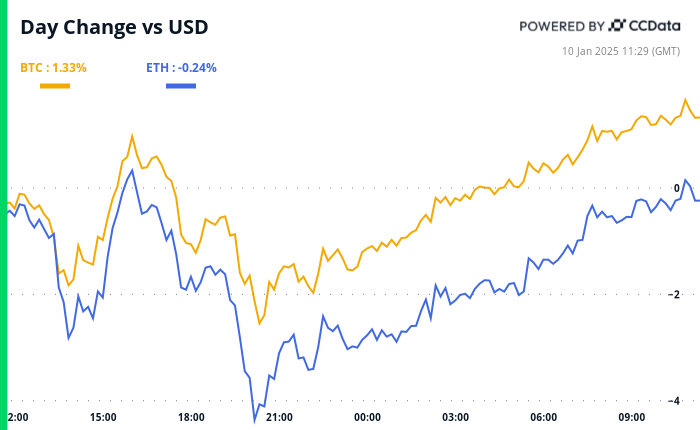Damian Williams, the United States Attorney for the Southern District of New York and Michael J. Driscoll, the Assistant Director in Charge of the New York Field Office of the Federal Bureau of Investigation (“FBI”), announced the unsealing today of an indictment charging RIKESH THAPA with operating a scheme to defraud a start-up technology company (the “Victim Company”) of over $1 million worth of United States currency, cryptocurrency, and utility tokens. THAPA used proceeds of his crime on personal expenses, including nightclubs, travel, and clothing, and falsified records and deleted evidence to conceal his theft. RIKESH THAPA was arrested earlier today in the Southern District of California. The defendant is expected to be presented before U.S. Magistrate Judge Mitchell D. Dembin this afternoon. The case is assigned to U.S. District Judge John P. Cronan.
U.S. Attorney Damian Williams said: “Rikesh Thapa allegedly betrayed his company’s trust, as he was responsible for the safeguarding of substantial amounts of money. Thapa went to great lengths to cover up his frauds, but, thanks to the dedicated work of this Office and our law enforcement partners, he will now have to answer for his crimes.”
FBI Assistant Director in Charge Michael J. Driscoll said: “As we allege today, the defendant repeatedly stole from and defrauded the victim company – which he cofounded – in order to fund a luxurious personal lifestyle. In an attempt to hide his crimes, he also deleted and falsified records. The FBI will continue to work to ensure individuals willing to scam and steal from private businesses are held accountable in the criminal justice system.”
As alleged in the Indictment unsealed today in Manhattan federal court:[1]
RIKESH THAPA co-founded and was the Chief Technology Officer (“CTO”) of the Victim Company, which during the relevant period was involved in using blockchain and other technology to provide a ticketing platform for live events. Between December 2017 and September 2019, THAPA used his position to carry out a scheme to defraud the Victim Company.
In 2018, the Victim Company sought to diversify its banking because of its understanding that certain financial institutions were reluctant to maintain relationships with companies, such as the Victim Company, involved in cryptocurrency transactions. In furtherance of that effort, THAPA agreed to receive and hold $1 million of the Victim Company’s money in his personal bank account (the “THAPA Account”) while the Victim Company explored banking options. Soon after receiving the $1 million, however, THAPA began using the funds on personal expenses. Nevertheless, THAPA repeatedly acknowledged what was supposed to be the temporary nature of his possession of the funds, representing to a colleague, in substance and in part, that the money was “a stationary 1mil in my account” that was held “for safe keeping.” THAPA then falsified records to conceal his theft, providing the Victim Company with a forged bank statement, which falsely represented that THAPA held over $21 million, approximately $1 million of which was held in a particular savings account (the “Purported Account”). In fact, THAPA did not have the Purported Account and held much less than $21 million at the relevant bank. In 2019, THAPA refused to return the $1 million, which he spent on, among other things, nightclubs, travel, and clothing.
In addition, between December 2017 and September 2019, THAPA used his control over the Victim Company’s cryptocurrency holdings to embezzle at least 10 Bitcoin from the Victim Company. For example, in August 2018, THAPA diverted at least one of the Victim Company’s Bitcoin for his own benefit, selling the Bitcoin for approximately $6,500 and depositing the proceeds into the THAPA Account (the “August 2018 Bitcoin Transaction”). To avoid detection, THAPA falsified trading records and deleted emails. In July 2019, THAPA sent the Victim Company’s CEO a fraudulent transaction report that misrepresented the August 2018 Bitcoin Transaction. After the CEO, copying THAPA, thereafter requested and received a transaction report directly from the Victim Company’s cryptocurrency brokerage, THAPA disabled the CEO’s email account at the Victim Company (the “CEO Email Account”), deleted the cryptocurrency brokerage’s email from the CEO Email Account, and then deleted the entire CEO Email Account.
In yet another facet of the scheme, THAPA stole the Victim Company’s utility tokens. Such tokens are a type of cryptocurrency that can be used to access particular services, products, or features. In July 2019, unbeknownst to the Victim Company’s CEO, THAPA set up a meeting in Italy between THAPA and individuals who claimed to be interested in purchasing the Victim Company’s utility tokens. Before the meeting, THAPA provided account information for the THAPA Account so that the purported investors could wire him funds. During the meeting, however, THAPA agreed to receive cash in exchange for utility tokens. After the meeting, THAPA transferred, without authorization, approximately 174,285 of the Victim’s utility tokens to the purported investors. THAPA later determined that the cash he had received from the purported investors was counterfeit.
* * *
RIKESH THAPA, 28, of San Diego, California, is charged with one count of wire fraud, which carries a maximum sentence of 20 years in prison.
The statutory maximum sentence is prescribed by Congress and provided here for informational purposes only, as any sentencing of the defendant will be determined by the judge.
Mr. Williams praised the outstanding investigative work of the FBI’s New York Field Office.
The prosecution of this case is being handled by the Office’s Complex Frauds and Cybercrime Unit. Assistant U.S. Attorney Timothy V. Capozzi is in charge of the prosecution.
The charge contained in the Indictment is merely an accusation, and the defendant is presumed innocent unless and until proven guilty.
[1] As the introductory phrase signifies, the entirety of the text of the Indictment constitutes only allegations, and every fact described herein should be treated as an allegation.
Read More: news.google.com









 Bitcoin
Bitcoin  Ethereum
Ethereum  Tether
Tether  XRP
XRP  Solana
Solana  Dogecoin
Dogecoin  USDC
USDC  Cardano
Cardano  Lido Staked Ether
Lido Staked Ether  TRON
TRON  Avalanche
Avalanche  Sui
Sui  Wrapped stETH
Wrapped stETH  Toncoin
Toncoin  Chainlink
Chainlink  Shiba Inu
Shiba Inu  Wrapped Bitcoin
Wrapped Bitcoin  Stellar
Stellar  Hedera
Hedera  Polkadot
Polkadot  WETH
WETH  Bitcoin Cash
Bitcoin Cash  LEO Token
LEO Token  Uniswap
Uniswap  Litecoin
Litecoin  Pepe
Pepe  Hyperliquid
Hyperliquid  Wrapped eETH
Wrapped eETH  NEAR Protocol
NEAR Protocol  USDS
USDS  Ethena USDe
Ethena USDe  Internet Computer
Internet Computer  Aptos
Aptos  Aave
Aave  Mantle
Mantle  Cronos
Cronos  POL (ex-MATIC)
POL (ex-MATIC)  Ethereum Classic
Ethereum Classic  MANTRA
MANTRA  Render
Render  Bittensor
Bittensor  Monero
Monero  Artificial Superintelligence Alliance
Artificial Superintelligence Alliance  Dai
Dai  Tokenize Xchange
Tokenize Xchange  Filecoin
Filecoin  Arbitrum
Arbitrum